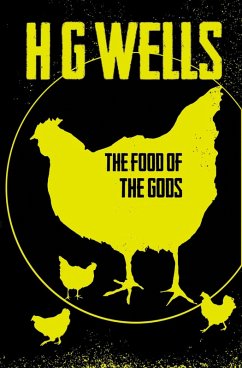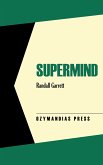Published in 1904 The Food of the Gods is a forgotten H.G. Wells classic; it is sci-fi and dystopia at its best written by the creator and master of the genre. Following extensive research in the field of 'growth', Mr Bensington and Professor Redwood light upon a new mysterious element, a food that causes greatly accelerated development. Initially christening their discovery 'The Food of the Gods', the two scientists are overwhelmed by the possible ramifications of their creation. With Aunt Jane refusing to give house room to their experiments, Mr Besington is forced to take his laboratory out into the wide world, and chooses a farm at Hickleybrow in Kent that offers him the chance to test his new substance on chickens, which duly grow monstrous, six or seven times their usual size. With the farmer, Mr Skinner, failing to contain the spread of the Food, chaos soon reigns as reports come in of the local population's encounter with monstrous wasps, earwigs and rats. When the chickens escape, they leave carnage in their wake. Keen not to be outdone, the Skinners and Redwoods have both been feeding their children the compound illicitly - their eventual offspring will constitute a new age of giants. Public opinion rapidly turns against the scientists and society as a whole rebels against the world's new flora and fauna. Daily life has changed shockingly and now politicians are involved, trying to stamp out the Food of the Gods and the giant race. Comic and at times surprisingly touching and tragic, Wells' story is a cautionary tale warning against the rampant advances of science but also of the dangers of greed and political infighting and shameless vote-seeking.
Dieser Download kann aus rechtlichen Gründen nur mit Rechnungsadresse in A, B, BG, CY, CZ, D, DK, EW, E, FIN, F, GR, H, IRL, I, LT, L, LR, M, NL, PL, P, R, S, SLO, SK ausgeliefert werden.









